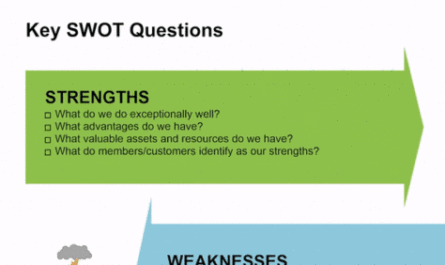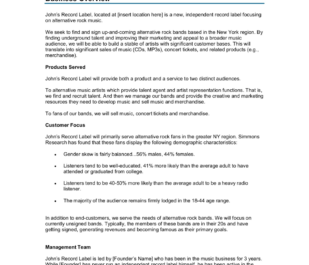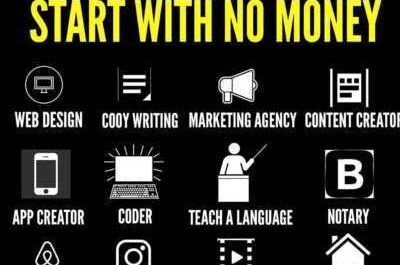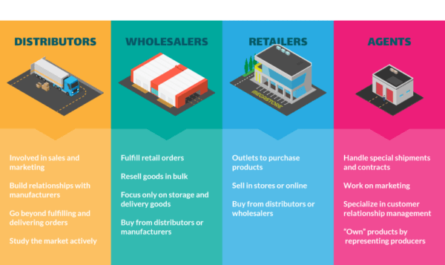Do you want to start a business incubator? here’s everything you need to know about the business incubator model, plus an example of successful businesses.
What is a business incubator?
Business incubators are organizations that aim to help startups and organizations accelerate their growth from the start. Incubators also help their trusted businesses raise capital from angel investors, state governments, economic development coalitions, and other interested investors.
Business incubation programs are often funded by private companies or municipalities and government agencies such as colleges and others. the universities. Their aim is to help start and grow young businesses by providing them with the financial and technical support and services they need.
Incubators are very important in the life of a new business as they provide many benefits to these businesses, first of all their offices and production facilities are offered at lower than market prices and their employees provide advice and knowledge essential to a growing business. They also create great marketing plans for these businesses so that they can easily access funding.
Companies typically spend an average of two years in a business incubator, during which time they often share costs over the phone, secretarial offices and production equipment with other start-ups to reduce overheads and operating costs, as well as limiting financial options.
Advantages of the business incubator
A business incubator offers a variety of benefits to budding entrepreneurs, especially since they can no longer be ignored when starting a business. These benefits can include:
- Space to work . Some incubators offer office space for free or at lower than market prices for companies in their portfolio. It solves a lot of problems for startups. Basically, it allows them to find a professional space so that their employees can work without having to sign a lease. This is especially useful when the business is unsure of how quickly it will increase production or the number of employees.
- Access to specialized equipment. Some incubators invest in specialized equipment such as modeling software, 3D printers, prototyping equipment or software development labs. This equipment is very useful to develop early businesses. Access to expensive hardware and simulation software can be essential to get started.
- Experienced mentors: It’s important for startups to limit critical errors when scaling up. Most incubators offer an experienced team of seasoned industry leaders to help the business team stay focused and avoid mistakes. Incubators typically hire mentors with some start-up experience who can help explain the processes, planning, and decision criteria to distract new entrepreneurs from costly mistakes they’ve made or witnessed.
- Expert training: Many business incubators offer a range of important business training, from legal advice on start-up documents, incorporation deadlines or intellectual property issues, to general business tasks such as delivery product, creating a culture of quality, or implementing sales and marketing processes. …
- Software discounts: From accounting to project management, incubators typically offer business software that helps their startups scale. Prices and training are usually reviewed and negotiated at a standard rate that allows portfolio companies to qualify for employment. HubSpot offers this type of agreement to over 1,000 startup partners around the world.
- Multiple Business Services: Just like operating and choosing software availability, many incubators offer accounting, banking, marketing, and manufacturing services to help businesses scale.
- Access to like-minded entrepreneurs: One of the best attributes of a business incubator is intangible assets. Working with a group of like-minded entrepreneurs, using relationships to connect with clients or potential clients, and educating others in your group are invaluable parts of the life of an incubator.
The role of business incubators
Incubators provide a variety of venture capitalists, angel investors, and other mentors for entrepreneurs. By helping startups build office space or do their due diligence, they allow the startup to focus more on managing its core business to achieve success in record time.
The business incubator provides companies with essential support to develop their new startup. This support can take the form of:
- Infrastructure: . Start-up incubators provide office workspaces, workshops for startups to kick off and kick off the initial prototyping phase.
- Network: incubators help several startups at the same time. When these startups work under one roof, they connect with entrepreneurs in the same industry, which helps them understand how to improve their product. Many incubators even organize networking meetings for newbies to help entrepreneurs expand their network.
- Financial Advice / Intellectual Property Teams / Legal Advice: Business incubators provide their financial advisors, intellectual property teams and legal advisers. entrepreneurs so they can make informed decisions.
- Contacts for Potential Investors: Business incubators have been in the business of starting up startups to become legitimate businesses. For this reason, they have many contacts with previous and potential investors. They even help entrepreneurs build the perfect deck.
- Manufacturing: Many startup incubators have the tools and equipment needed to produce prototypes, 3D models, and even end products.
- Initial financial support: Some business incubators provide a minimum fund to start and start the initial phase of idea and concept development.
- Training and advice: Business incubators train market experts on how to start, develop and implement ideas, monitor your progress closely, and explain how to improve your reach and reach your target market.
What are the advantages of business incubators?
Business incubators help student entrepreneurs develop their ideas and successfully transform them into business models. This is to encourage potential students to register with their services.
Some existing companies are implementing ideas to develop an ecosystem around their existing product line, thus causing a market bias in their favor. Other private incubators help entrepreneurs by providing support in exchange for equity.
How incubation benefits society
Incubators were created with the aim of achieving a wide range of objectives, mainly those that small businesses need, such as job creation, development of innovative ideas, diversification of the local economy and the creation of widespread activities and wealth creation in the region by creating a dynamic small business sector. can be asked if they actually achieve these goals.
In 2001, British Business Incubation measured the impact of incubators on the local economy and the UK workforce. The survey found that incubator client companies provided an average of 167 jobs (full-time equivalents) per incubator, and they employed an average of 30 client companies.
The majority (60%) of incubators also provide outreach services, help and advise businesses located outside the walls of the incubator. Community incubators supported an average of 106 additional businesses. In the sample, an average of 75% of corporate clients transferred up to £ 500,000, but only 1.5% had turnover above £ 5million.
More importantly, companies hosted in UK incubators have seen an average success rate of 80% compared to the national average of 50% of all small and medium businesses registered and traded this year. About 70% of incubators have attempted to measure the impact of their clients’ activity, for example, in terms of jobs created and financial performance. These indicators have also influenced public policies and funding in this area.
These studies highlight the support for incubators as well as their potential contributions. In particular, they highlight the usefulness of incubators for identifying and supporting businesses with potential growth, promoting technology transfer, encouraging innovation and expanding the range of local businesses.
However, since the incubation was only effective for a relatively short period of time. Over time, there is less evidence that they generate jobs and wealth, which is perhaps to be expected given the nature of these opportunities i.e. to suggest long-term approaches. term of the immediate disadvantages of a startup.
7 things you need to know about business incubators before you start
- Know why you need it
Incubators work with early childhood businesses or baby businesses to help them access resources and support to become self-reliant. When people decide to become entrepreneurs but don’t know where to find help, an incubator can provide mentoring, training, collaboration (with like-minded people), access to networks, and even at physical offices. If your business is just starting out, you may need to look elsewhere.
- Take a look at the incubator’s background before registering
Just as investors look at startup cravings, before investing, you should look at the success of previous startups in a particular incubator. The success of an incubator should be measured by the performance of startups after graduation. Does the incubator have a history of successful startups? Did the incubator help startups increase their seed supply after graduation?
- Find those with whom you have common goals
Ultimately, your assessment should be based on what you need.If you lack support or mentorship, if your business plan is close to work, an incubator can be a great vehicle for that little boost. and that social support to help your business get out. to a new level. When looking for someone to sign up with, you need to pay attention to which ones match your business goals.
- Don’t be in a hurry
Before joining an incubator, think about what’s going on in your life, your level of commitment to your business, the location of the incubator, and the requirements. Do not overdo it.
Ask yourself if you are ready to be a customer. This means that you must participate in the program; be trainable and under someone; accept comments from the management of the incubator; and keep growing as a leader of your own business all the time.
- Know the difference between early and advanced stage incubators
Early stage incubators are useful in helping an entrepreneur turn an idea into a step-by-step roadmap for starting a business. A key element of these incubators is mentoring by experts in the areas of business plan development, financial strategy, management, operations, branding, investor proposal , marketing strategy, etc.
Late-stage incubators and accelerators for businesses that can demonstrate initial market impact can provide significant access to angel investors and opportunities to offer to venture capitalists. Incubators and Accelerators also help build important networks of contacts which can be useful for funding and partnership prospects.
- Beware of hidden charges
Incubators typically provide low-cost office space and basic business needs like internet connectivity for a fee. Entrepreneurs need to understand exactly what the program offers and at what cost.
The advantage of incubators is easy and inexpensive access to essentials such as offices, telecommunications technology, boardrooms, and mentors. The downside is that incubators can often be more focused on securing rent than adding value to the entrepreneur’s business, meaning there always seems to be another tenant who in line.
How to be recognized in an incubator program in 4 steps
Admission to a business incubator can and should be a process. Most incubators have an admission process and require companies to apply for admission. The criteria for admission to an incubator vary, but most require that you submit a viable business idea and a professional business plan. Here are some steps to help you find the right incubator for your business.
- Browse your options geographically or vertically . Due to the large number of incubators available, you can choose from several options. By doing a quick regional search, you can understand and assess which incubators might meet your business needs. Always browse the website and look for referrals from successful businesses they’ve helped as well as a few businesses that have dropped out to gain a general understanding of relevance.
- Review their admissions criteria Most incubators have set criteria for the types of businesses they are willing to help. Some require specific milestones or criteria such as workforce, capital, entrepreneurial experience, work experience, income, or product suitability. Others require contractual obligations from accepted companies, so read the appendix and understand what is important in determining compliance.
- Prepare Your Business Plan A business plan may not be necessary during the application process, but it helps determine if an incubator is right. A simple overview of your company name, team spirit, value proposition, competitive advantage, market address, market strategy, product or service and a 12 month forecast will help you differentiate your business. Keep it simple for this step.
- Know that you will be tested . In most cases, incubators will accept initial applications from companies that meet the basic criteria. Some incubators need video footage to explain the business model, vision, and mission of the company.
In the second step, your goals, plans, strengths and weaknesses are usually achieved and discussed. with a verification commission. This can take the form of an application, a submission or an interview, or a series of meetings to define each party’s expectations. So you need to prepare for it. If you pass the verification step, you will likely be accepted.
50 successful companies operating according to the business incubator model
- Techstars
One of the biggest game acceleration programs is Techstars. They select over 300 companies per year to join their three-month mentoring program. Techstars invests $ 120,000 in each startup and provides hands-on mentoring and lifetime access to the Techstars network. Techstars hosts dozens of accelerator programs in cities and industries.
- Capital factory
Capital Factory Gives Accelerator Startups has a competitive advantage in attracting talent, consultants, investors and clients. access to a network of mentors from leading Texas investors and entrepreneurs.
- Austin Tech Ranch
Tech Ranch empowers entrepreneurs and ecosystems with the knowledge, proven methods, tools and processes that the community and the entrepreneur develop. Tech Ranch was voted in the Top 3 Social Impact Incubators by UBI Global 2015 and in the Top 20 US / Canada Accelerators 2016 by Gust Global Report. Its programs have reached over 6,000 entrepreneurs in more than 42 countries, with more than 750 solutions deployed.
- MassChallenge
Based in the United States, MassChallenge is headquartered in Boston, Israel, Mexico, Switzerland, Texas and the United Kingdom, strengthening the global innovation ecosystem by accelerating high potential startups across all industries. , from anywhere, to the ground. justice is accepted.
- MergeLane
Particularly for women-led startups, MergeLane aims to support diverse startup communication through virtual mentorship, personal coaching and a program focused on early business issues and topics that specifically target women leaders The program takes place in Boulder, Colorado, but companies must be present. only for participation in the 12 week program. Some programs may be nearing completion.
- Chicago Blockchain Center
The recently launched Chicago Blockchain Center is an accelerator focused on blockchain-based technologies. In partnership with the State of Illinois, the Chicago Blockchain Center provides a platform for education, innovation and development with leading Chicago-based companies and entrepreneurs.
- New business challenge
Launched in 2096, the Edward L. Kaplan New Venture Challenge is recognized as one of the most popular acceleration programs in the United States. Thanks to NVC, the Paul University Chicago Center has produced more than 230 startups and created thousands of jobs for the economy. NVC startups have reached over $ 13 billion in mergers and exits and include names like Grubhub, Braintree / Venmo, and Simple Mills.
- WiSTEM
WiSTEM is a 12-week accelerated program that connects women with financial, community and technology resources. This program, co-created since 1871 and Ms. Tech, has seen success since its launch in 2015, helping more than 50 women-founded businesses that have raised nearly $ 10 million. The United States and have created hundreds of jobs. Funding from JPMorgan Chase has led to a recent expansion of the program, which is based on peer learning, knowledge sharing and a fundraising program.
- Branderi
Branderie is a national accelerator leveraging the expertise of the Cincinnati region, including branding, marketing and design. In addition to an elite network of mentors, startups partner with world-class creative agencies and have access to some of the world’s largest companies, including Procter Gamble and Kroger. Branderi is launching a 16-week per year acceleration program for five companies. Each participating startup receives $ 100,000 per year for free office space and over $ 200,000 in employee benefits.
- Do in LA
Make in LA is a startup-oriented acceleration program. The Los Angeles program includes four months of hands-on work, from prototyping to preparing projects for investors. Innovative hardware startups can apply online during the annual application period.
- MuckerLab
MuckerLab works without any additional steps. more than ten companies per year, doing whatever is necessary for as long as necessary to ensure that each company meets the operational milestones required for the next funding cycle. MuckerLab was recently recognized as the second accelerator in the United States. Its bespoke model allows the company to take a deep foothold as supporting executives in the business from the early stages, as well as those going through major tipping points.
- AngelPad
AngelPad is a seed acceleration program based in New York and San Francisco. Over 140 companies have been launched since 2010. Every 6 months they select around 15 teams from a large number of applicants (usually around 2000) to work. AngelPad was recently voted number one accelerator in the United States (according to a study by MIT / Brown University). AngelPad has been nicknamed the “Anti-Y Combiner” due to its strategy of working with fewer teams on an annual basis.
- Betaworks (Camp)
Camp brings together Betaworks expertise in building and investing in thematic acceleration programs for high-tech startups. Camp themes reflect the areas they focus on the most and evolve with their investment theses. The theme of this series is livecamp: everything related to streaming, esport, etc.
- Blueprint Health
Blueprint Healthcare invests time and $ 20,000 per year in 20 healthcare IT companies. Staff and mentors work intensively with companies for three months to help them achieve their individual business goals. Typically, these goals include attracting customers, raising capital, creating marketing and sales materials, and improving the investor’s offering. But Blueprint Health isn’t ending in three months – they continue to help their graduate founders build and grow their businesses, and provide them with additional resources the community can provide.
- Harlem Co-Founder
Cofound Harlem is a New York-based acceleration program that aims to build 100 businesses in Harlem by 2021. The Accelerator provides mentoring, education and other types of support. Harlem startups and businesses looking to make a real impact in the community.
- Dream it
Dreamit Ventures is a start-up venture capital fund that accelerates startups by creating products to transform healthcare, real estate / construction environments, and security. Dreamit identifies and invests in startups with ready-to-sell products that are looking to gain customers faster, enter new partnerships, and raise the next round of funding. Startups participate in one of Dreamit’s three verticals: UrbanTech, HealthTech or SecureTech.
- Roundtable accelerator for entrepreneurs
The Entrepreneurship Roundtable Accelerator brings together start-up capital, hands-on help and a great coworking location with a team of experts to positively impact the trajectory of start-ups. ERA runs two four-month programs per year. It is New York’s largest acceleration program and also its deepest and strongest mentorship network with over 400 experienced investors, technologists, product specialists, marketers, customer acquisition strategists, professionals. sales and more in all major industries represented. in New York.>
- Fintech innovation laboratory
The Fintech Innovation Lab is a highly competitive 12-week program that helps growing-stage startups refine and validate their value proposition with the support of the world’s largest financial services companies.
- MetaProp NYC
MetaProp and Columbia University are collaborating to bring together some of the most innovative and influential real estate institutes and other visionary PropTech companies to lead the MetaProp Accelerator at Columbia University Consortium.
- New York Lab for Digital Health Innovation
The New York Digital Health Innovation Lab, formerly NY Digital Health Accelerator, is an annual program run by the New York-NYC eHealth Partnership Foundation for growing companies developing cutting-edge technology products designed for healthcare facilities.
- Start 52
Startup52 is a New York-based accelerator program for beginners focused on promoting diversity. The Accelerator accepts startups in a variety of industries, but places a lot of emphasis on the capabilities and diversity of the founding team members. Accepted startups benefit from mentoring, coworking and other personalized support adapted to each startup.
- To venture out
VentureOut is a New York-based program that is a weekly hyper accelerator. It attracts startups from around the world and connects them with members of startups and tech communities in New York City. The VentureOut program includes courses in topics ranging from leadership to sales, and ends with one-on-one meetings and new client meetings at the end of the week.
- XRC Laboratories
For startups specializing in retail and consumer goods, XRC Labs offers an innovative, design-driven acceleration program in New York City that provides members with mentorship, access to capital, operational support and space. working on the campus of the Parsons School of Design at New School. XRC Labs offers two 10-week programs each year.
- AlphaLab
AlphaLab is a national software accelerator based in Pittsburgh. They help start-up businesses quickly find the best way to create and grow an exciting 4 month program with funding opportunities.
- BoomStartup
BoomStartup is a business start-up fund and virtual accelerator program. They lay the groundwork for an entrepreneurial camp such as personalized acceleration plans, extensive mentoring from seasoned professionals, one-on-one mentoring, investor presentations and market development. The program uses the Lean Startup methodology to launch a range of business start-up programs such as Technology, Software, EdTech, Product and Biotech startups.
- Capria
Capria is a valuable Seattle-based investment acceleration and investment firm focused on global startups. The program aims to work with startups that develop innovative solutions to global problems, especially those in emerging markets.
- 500 startups
Perhaps one of the best-known accelerators, 500 startups in 4 months Seed program gives your business access to mentorship, hands-on training with startup experts, and an office where you’ll work with other talented founders from around the world. They invest $ 150,000 in exchange for 6% equity. For participation in the program, a fee of $ 37,500 is charged. USA, held in San Francisco and Mexico City.
- Alchemy Boosters
Alchemist Accelerator is an accelerator designed exclusively for startups whose revenue is generated by businesses, not consumers. The Accelerator is focused on corporate customer development, sales, market validation and a structured fundraising journey.
- Boost VC
Boost VC invests between $ 50 and $ 100 thousand in exchange for 7% of the company. They are looking for passionate technologists from all over the world for their accelerator in Silicon Valley. They give their companies a place to live and work, an unparalleled network and time to focus on their startup.
- Founders Embassy
The Founders’ Embassy uplifts, inspires and educates the founders and founders of international immigrants, providing them with unprecedented opportunities. access to Silicon Valley through its exciting bootcamp-style acceleration programs, awesome events and thought leadership – all without any share trading. To participate in the program, a startup does not have to be based outside the United States. However, if the company is based in the United States, they require that one of the founders be a United States citizen or an immigrant.
- Illumina Accelerator
For clinical research and applied science startups, especially genomics, Illumina Accelerator provides extensive mentorship, lab space funding, and more. Founders accepted into the program must work full time in the Bay Area during the six month program.
- Material
Matter is a 20-week accelerator program focused on design thinking. Based in both San Francisco and New York, members are immersed in a culture of collaboration where they learn to focus on creating human-centric offerings to fail quickly and get products to market faster. . The application process includes the submission, the project and the final phase that startups must pass to be selected.
- Upwest Labs
Upwest Labs is offering $ 20,000 over four months to small businesses based in Silicon Valley. In addition to seed funding, small businesses can access investors, mentors and more through Upwest Labs’ comprehensive Small Business Development Program.
- The camp
Le Camp is an incubator-accelerator in Quebec dedicated to growth and mentoring in the field of technology. They offer a variety of services adapted to the stages of development of the company, from pre-launch to internationalization.
- Creative destruction lab
The Creative Destruction Lab helps innovators move from science projects to high-growth companies. Its primary focus is a start-up program, which aims to help businesses navigate the transition from seed funding to seed funding. Thalmic Labs, Nymi, Charge Spot, and Pet Bot are examples of companies CDL works with.
- DMZ
DMZ is the world’s leading accelerator for tech startups in Canada. They help startups build great businesses by connecting them with clients, capital, experts, and a community of entrepreneurs and influencers. They strive to create an environment in which businesses can focus on expanding their businesses. They are committed to helping scalable tech startups, building a vibrant startup community, and driving innovation in Canada.
- Extreme accelerator
Extreme Accelerator is Canada’s most active pre-seed fund investment, sponsoring immigration and accelerating global startups. They are mainly looking for international startups that are moving or expanding to Canada in order to target the global or North American market. They also require the demonstration of market suitability for the products through revenue and audits of accelerators or other parties.
- Ideaboost
Ideaboost is a Toronto-based business accelerator and startup community for businesses building the next generation of technology-driven multimedia and entertainment products, services and brands. This accelerator is an initiative of the Canadian Film Centre’s Media Lab in partnership with Corus Entertainment. It offers high-potential Canadian startups early-stage investment, mentorship and access to its network.
- Launch academy
Launch Academy is a technology incubator that provides the mentorship, resources, networks, and entrepreneurs needed to launch, fund, and grow their startups. Launch Academy offers three comprehensive programs, depending on the needs and stage of growth of the startup.
- Acceleration of tectoria
Its mission is simple: to increase the number of successful tech companies starting and growing in the Greater Victoria area. Through contributions and funding from its partners, Accelerate Tectoria provides a structured business development service designed to guide, train and develop budding entrepreneurs in the early stages of technology.
- Kickstart CSI
Known for their mentorship, impressive toolbox, abundant resources, and ability to connect projects with the right investors, potential investors, mentors and more, CSI has it all. The incubator offers everything from human resources to savvy entrepreneurs with their own manufacturing business and even a virtual candy box!
- 1M / 1M li>
This global incubator is fully digital and aims to help one million entrepreneurs achieve annual sales of $ 1 million over the next four years. This will lead to the creation of up to ten million jobs. Based on online educational programs, you will follow video lectures and interact with online strategies and mentors. Aspects of this virtual incubator are free, but only certified members can access the entire program.
- eFactory
Based at the University of Missouri, grantees are startups that aren’t nearby, but that fit well with the program’s goals. Growing businesses, startups and job creation are the goals of eFactory. You can access the incubator program for support, consulting, administrative support and general equipment services. Postal services, virtual meeting rooms, access to mailing lists and mentoring are at the heart of this program.
- DreamIt Ventures
DreamIt focuses on the trio of global startups, investors and innovative companies. DreamIt is one of the 20 most active incubators in the country. He helps entrepreneurs grow by raising capital and clients. The incubator is also partnering with brands and companies to contribute to pilot programs and technological advancements. Leading angel networks and venture capitalists are also partnering with DreamIt to create a healthy startup ecosystem.
- Amplify LA
Tech start-up Amplify LA understands that not all startups are the same, which means their goals and backgrounds aren’t the same. The program is based on a flexible approach, and an accelerator is configured for each project.
There is no schedule for all coverages or a necessary schedule for everyone. Instead, mentors monitor startup performance and provide support. On-site assistance in Venice Beach is possible, but with flexible mentoring there are few requirements.
- Startx
If any of your startups are connected to Stanford, you can participate in the Accelerator program. Your connection can come from your students or alumni, but only one person should have such a connection. Otherwise, on-site incubator options are available, including a visiting professor.
- CodeLaunch
CodeLaunch, Frisco, Texas, is a competition held annually between individuals and groups for ideas from tech startups. This competition has become a source of success for at least 7 startups that have won it. This competition is aimed at the “rudimentary” stage and “very early” stage startups via well-known startups can also participate, but will not be the main focus.
The main objective of this event is to create an environment through which people and their ideas can connect with investors, as well as for investors to come up with ideas that they would like to support. Key2Close was one of the finalists in the 2015 competition.
- T-Hub
India’s largest startup incubator is T-Hub, also known as Telangana Hub. On November 5, 2015, the first phase of the T-Hub was commissioned by ESL Narasimkhan, Governor of Telangana and Ratan Tata, Honorary President of Tata Sons, and IT Minister of Telangana Panchayat Raj KT Rama Rao. Housed in a 70,000 square foot building called CatalysT, it is entirely dedicated to entrepreneurship.
- Halle Center for Digital Innovation
The Hull Center for Digital Innovation, commonly known as C4DI, is a digital incubator based in Kingston-upon-Hull, England. To help startups, the company has forged ties with Amazon Web Services, PwC, Kingston Communications, and others. The C4DI accelerator was launched in May 2014.
- Combiner Y
Twice a year, they invest $ 120 in many startups. These startups are moving to Silicon Valley for three months for intense mentorship and support.









































